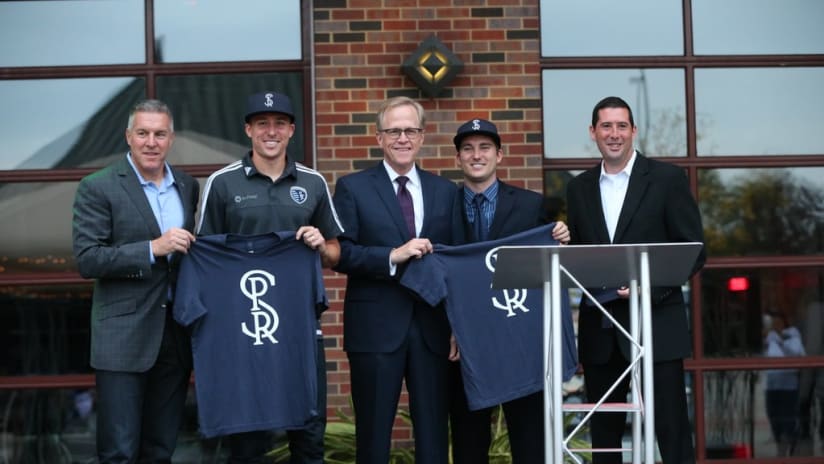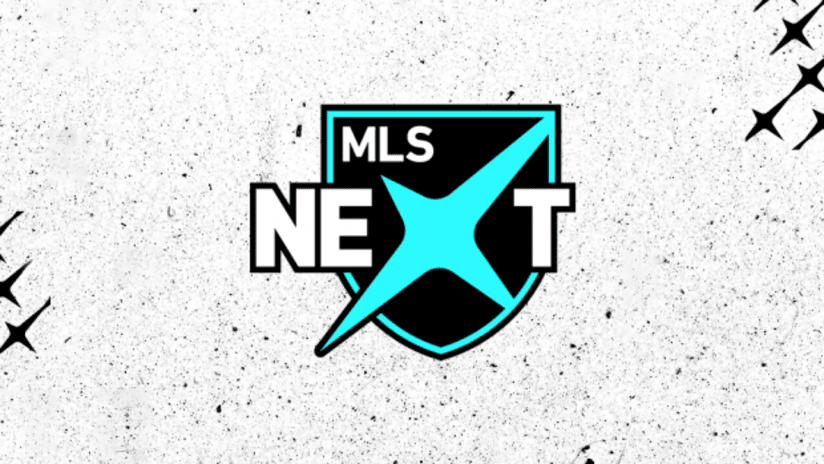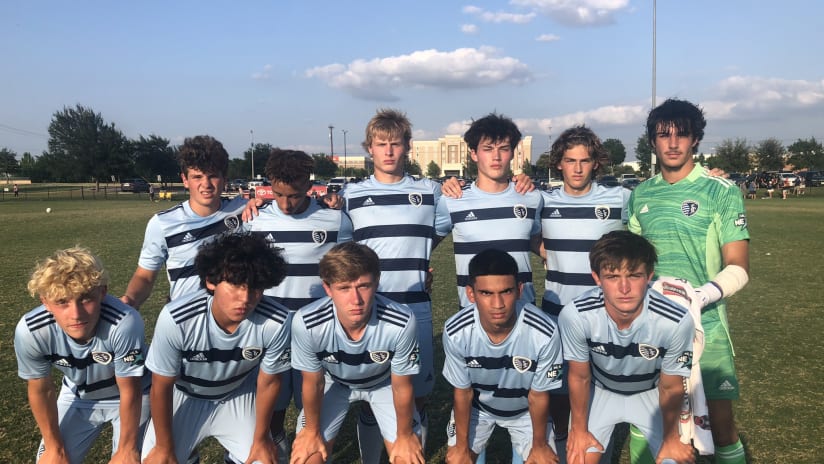This story appears in the November edition of Eleven the Magazine, the official digital magazine of Sporting Kansas City. Click here to check out the entire issue and follow the magazine on Facebook, Twitter and Instagram.
Sporting Kansas City is known around Major League Soccer as a trendsetter. One of the areas where the club is leading is in analytics. Assistant Technical Director Mike Jacobs (pictured, top right) went inside the numbers in this month’s Inside Access.
ELEVEN: Why is Sporting Kansas City so much farther ahead of other clubs in MLS with analytics?
JACOBS: The reason that Sporting is so entrenched in analytics goes directly to our manager Peter Vermes. He is very forward-thinking and I think he’s always been ahead of the curve compared to the rest of the league, whether that’s preparing his team for games or looking at player acquisition. I think we were one of the first clubs to employ a performance analyst to look at tendencies of opposing players, and our coaching staff is very analytical when accessing data with our own players.
ELEVEN: Is analytics growing around the league with teams seeing the value that Sporting has been reaping?
JACOBS: Absolutely – you’ll find that when compared to other sports that lend themselves to studies and statistics, analytics in soccer, especially MLS is still developing and growing. When you have companies like Pro Zone and Match Analysis that have the ability to spit out physical data as the game happens like distance covered or information that can be used to measure your team or other teams, it’s so beneficial. I think, though, that which data to use when accessing prospects is still being determined. When you think about what Bill James did with baseball analytics, we are still in the formative stages. It’s not that there isn’t information out there because there is. The key now is to research and figure out which information is the best to use.
ELEVEN: Is MLS behind the curve compared to other leagues around the world?
JACOBS: I think it’s universal in regard to constantly evolving. Most of the data that has been used so far has been used to access teams and players. I think it’s still in a state of flux where scouting players for transfer or other acquisition is concerned.
ELEVEN: How is the information that is gathered used?
JACOBS: Most of the information that we look at on a gameday or more commonly a game week is used to find tendencies of opposing players. When you look at the information provided by our performance analyst, the vast majority of what is gathered is distributed more to Peter (Vermes) and the coaching staff more than the players. I think sometimes coaches can use data and package it to players and not over complicate things. For Peter it’s all about simplifying the game and making sure that every player understands their particular role.
ELEVEN: But ultimately it’s still the instincts of Vermes and staff that effect substitutions and other game day decisions more than analytics.
JACOBS: I think that’s fair. Immediately after a game our coaches are looking at postgame data to look at our players’ performances in the match that just concluded and looking ahead to next week.
ELEVEN: Knowing that soccer analytics is an inexact science where scouting possible player acquisition is concerned. How do they fit into the club’s plan when assessing a player and their possible fit with Sporting?
JACOBS: We have profiles that we look for in players – tactical, technical, physical and psychological. The physical part of it is easier than the mental. It has to be the right person that fits even more than the right player. I don’t know that there are analytics to measure that that are better than just interaction with our staff and with those who have worked with that player previously. There are also things that Peter looks at and values differently than other coaches. The psychological part is the hardest of these four to determine and the one that we discuss the most.
“For Peter it’s all about simplifying the game and making sure that every player understands their particular role”
ELEVEN: Why do you think other clubs in MLS haven’t latched on to this?
JACOBS: It’s interesting. I think what ‘s remarkable is seeing how our club has been constructed and the attention to maximizing a budget in the salary cap. The ability to take players with lesser profiles and heighten those while they are here like Oriol Rosell, Kei Kamara and Roger Espinoza and not only did their profile rise but on two of those occasions they went to Europe on significant transfers. Each of Peter’s teams has been different. That comes from the league evolving and also the things that he looks for in a player has also developed throughout his career as a manager.




